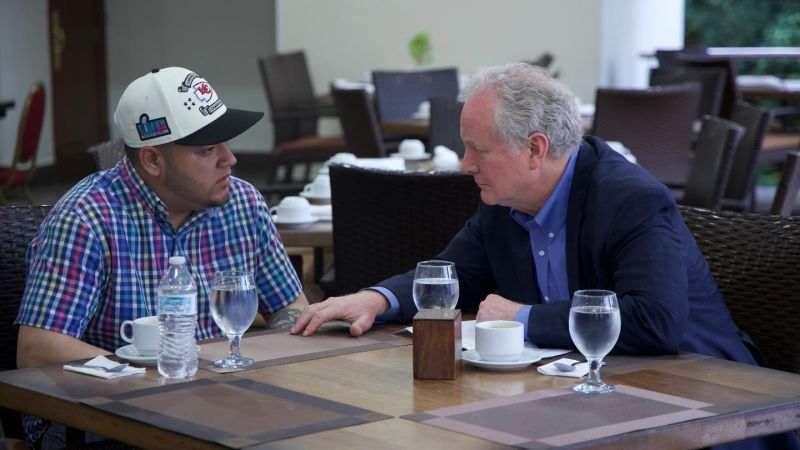The ongoing case of Kilmar Abrego Garcia highlights the complexities surrounding immigration enforcement in the United States, particularly amid the heightened scrutiny of individuals with alleged gang affiliations. Recently, the Trump administration intensified its efforts to characterize Garcia, who was wrongfully deported from the U.S. to El Salvador, as a gang member with a history of violence. This characterization has prompted widespread public concern and criticism about the due process provided to Garcia, raising questions about the implications of his deportation on constitutional rights.
Garcia’s family and legal representatives have vehemently denied that he is a member of MS-13, a notorious Salvadoran gang. This controversy unfolded against the backdrop of a renewed push from the Trump administration to paint a negative image of Garcia, claiming that he would “never come back” to the United States. The pressure intensified following public protests advocating for Garcia’s return, which ultimately led to Democratic Senator Chris Van Hollen of Maryland traveling to El Salvador to advocate for his release. Van Hollen referred to Garcia’s deportation as an “illegal abduction,” expressing concern for his well-being.
The administration responded to the senator’s actions by disparaging his visit and accusing the media and Democrats of presenting a misleadingly positive portrayal of Garcia. White House Press Secretary Karoline Leavitt labeled him as a gang member and alleged he had a history of domestic violence, which further fueled the debate surrounding his case. As part of their defense, the government released documents detailing two interactions Garcia had with law enforcement: a 2019 arrest that did not result in charges and a protective order filed by his wife in 2021 on grounds of domestic violence, though she later opted not to pursue the matter.
The 2019 interaction with law enforcement provided a precarious foundation for the government’s claims. Abrego Garcia was detained along with three others outside a Maryland Home Depot. The police report described suspicious behavior when two of the men allegedly discarded items as officers approached. During the ensuing police interview, one companion was identified as an MS-13 member, and another exhibited tattoos commonly associated with gang culture. Abrego Garcia, on the other hand, maintained that he had no gang affiliations, a position seemingly supported by his lack of a criminal history according to a Department of Homeland Security document.
Further complicating matters, the police documentation included contradictory accounts regarding Garcia’s fear of returning to El Salvador. While he identified himself as an illegal immigrant from the country who entered the U.S. in 2012, he went through immigration proceedings, including interviews that revealed he had faced extortion threats from gangs in El Salvador. In immigration court, an argument was made about his credible fear of persecution upon return, ultimately leading an immigration judge to grant him withholding of removal in October 2019.
Despite consistent court rulings appearing to favor Garcia, the Trump administration opted not to appeal the decision, consequently allowing his release from detention. However, the narrative shifted with the administration’s emphasis on various past incidents and legal documents — including the protective order filed in 2021 — to paint a portrait of a violent individual, despite his family’s rebuttal of those claims as unsubstantiated.
In late 2022, Garcia’s interaction with law enforcement during a traffic stop in Tennessee further complicated his narrative. Although the incident raised suspicions of human trafficking due to the lack of luggage and the number of individuals in the vehicle, Garcia’s wife asserted that he was simply transporting workers for legitimate construction purposes. As before, he faced no charges, yet the underlying implications of his alleged gang affiliation continued to haunt him.
This saga illustrates the precarious nature of immigration law, particularly concerning individuals like Kilmar Abrego Garcia, whose stories might be overshadowed by broader political narratives. Many observers, including analysts and immigration lawyers, point to systemic biases in how immigration cases are treated, especially in the context of accusations tied to gang violence. Ultimately, Garcia’s case reveals significant challenges within the U.S. immigration system, particularly the burden placed on individuals to prove their innocence against often vague and severe allegations.



